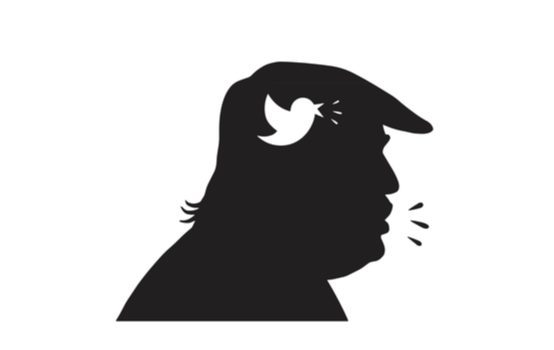What’s Wrong with Trump’s Tweets?

President Trump’s latest spate of vitriolic tweets about Morning Joe co-hosts, “Psycho Joe” (Joe Scarborough) and “low IQ crazy Mika” (Mika Brzezinski), have once again drawn the ire of legislators on both sides of the aisle. House Speaker Paul Ryan characterized the tweets as inappropriate, lamenting that they didn’t help to “improve the tone” and “the civility of the debate.” Similarly, Minority Leader Nancy Pelosi asserted that the tweets “set a low standard for public officials in terms of their demeanor.” Yet the crux of the issue with the president’s tweets remains largely overlooked—much more than his tone and demeanor, it’s his regular aimlessness that’s worth criticizing.
As the first lady once said, whenever the president is attacked, he strikes back “ten times harder,” and anyone caught in his daily flood of tweets knows that she isn’t exaggerating. But the president’s tweets don’t provoke outrage merely because they’re colorful. The issue is that they’re often directed at inappropriate targets. For example, when Ronald Reagan described former Libyan dictator Muammar Gaddafi as “the mad dog of the Middle East,” few bothered to yowl about his lack of decorum. Likewise, when Trump, in the wake of the Manchester bombing, labeled the terrorists as “evil losers,” the level of outrage at his wording was noticeably lower than usual.
It’s no accident that people don’t mind coarse language when it’s used to debase America’s enemies. If the president brandished his characteristic tone and demeanor only for that stately purpose, none but rhetorical prudes would denounce the crudeness of his tweets. Unfortunately, Trump has devoted inordinate amounts of energy to mock and deride celebrities ranging from Megyn Kelly and Samuel L. Jackson to Ronda Rousey and Snoop Dogg.
Nevertheless, the president’s lack of aim doesn’t mean that he should be admonished for putting rhetorical color to use. Hyperbole, profanity, and vulgarity are efficient tools. In Aristotle’s Rhetoric, he advises aspiring orators to “employ the language of anger in speaking of outrage” and “the language of disgust and discreet reluctance to utter a word when speaking of impiety or foulness,” because doing so increases a speech’s persuasive power. These notions aren’t alien to Trump. In The Art of the Deal he writes, “A little hyperbole never hurts….It’s an innocent form of exaggeration — and a very effective form of promotion.”
Aristotle and the president have the right idea. History is replete with significant figures who unsheathed garishly colorful language to great effect: Christ pegged the Pharisees as folk who “love the uppermost rooms at feasts” and “the children of them which killed the prophets” before marking them all as a “generation of vipers.” In a less eloquent, but equally effective lambaste, Martin Luther styled Henry VIII, King of England, as “a pig, an ass, a dunghill, the spawn of an adder, a basilisk, a lying buffoon” and “a mad fool with a frothy mouth.” Compared to either, Trump is a mere amateur at doling out verbal abuse.
Yet Trump isn’t entirely to blame for his poor choice in targets. The president, being a former entertainer, knows that his philippics will fall flat if his audience can’t grasp a crucial reference or allusion, so he makes frequent use of those figures that Americans easily recognize: actors, athletes, and TV news anchors—figures that hold an unduly large proportion of America’s national attention. If the average American knew the names of the thousands of peoples and groups that have nothing but a violent contempt for America and the American way, Trump would undoubtedly spend more of his time tweeting out hourly invectives against them instead of TV hosts (terrorists and tyrants make for easier targets). To a limited extent, the president’s choice to focus his vitriol on celebrities reflects the average American’s tragic ignorance of the people who actually threaten our national welfare.
Until Trump takes better aim or American culture changes dramatically, he will continue not only to stoke bipartisan outrage, but he’ll persist in destroying his reputation among that fast-diminishing, politically unaffiliated segment of the American population. These Americans hoped and imagined that the president would become capable of prioritizing threats to national well-being over petty squabbles. When 2020 rolls around corner, they’ll take their insights to the polls.
Michael Shindler is an Advocate with Young Voices. Follow him on Twitter here.
Comments